
The iPhone 4S had one of our favourite phone cameras of last year, providing shots that would give even some dedicated compact digital cameras a run for their money. Apple claims the iPhone 5’s snapper has even better tech, so let’s pit it against its closest smart phone rivals — the HTC One X and the Samsung Galaxy S3 — to see which is the serial shutterbug’s smart phone du jour.
All the shots were taken on the full 8 megapixels offered by each phone, with all other settings set to automatic. All the example images below can be clicked on to view the full-sized versions.
Outdoor test
All three phones did an admirable job of tackling this outdoor scene. It’s not an easy one to capture, as it combines dark areas in the buildings on the left and bright skies surrounding London’s Shard.
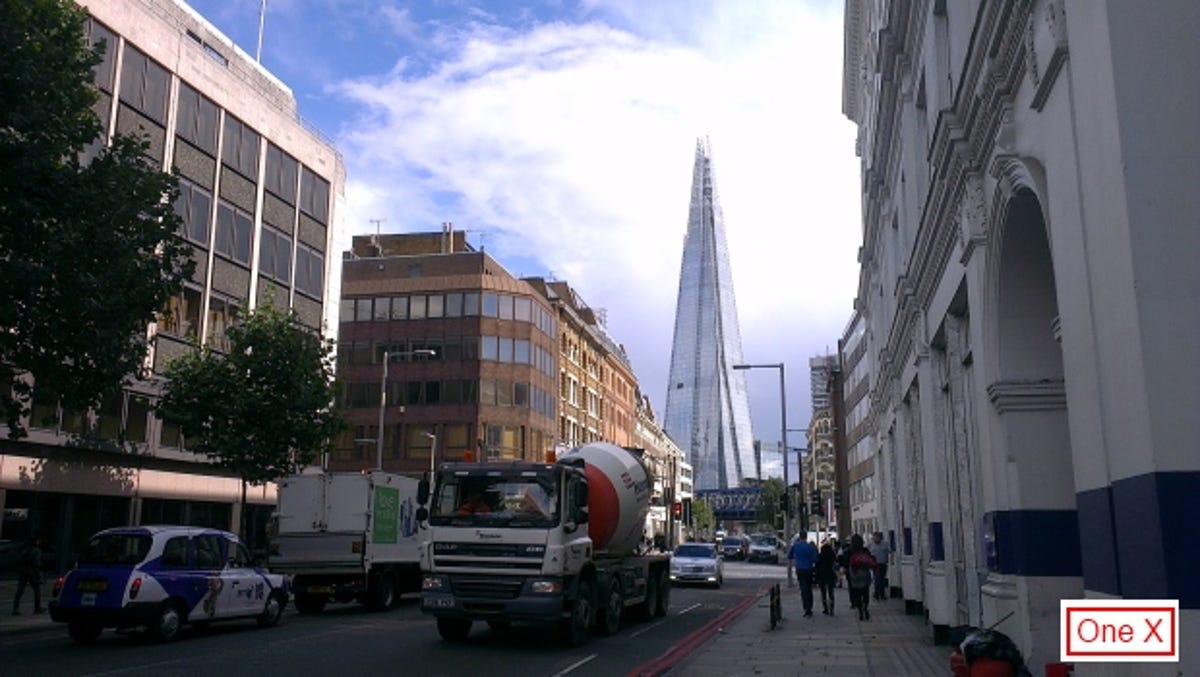

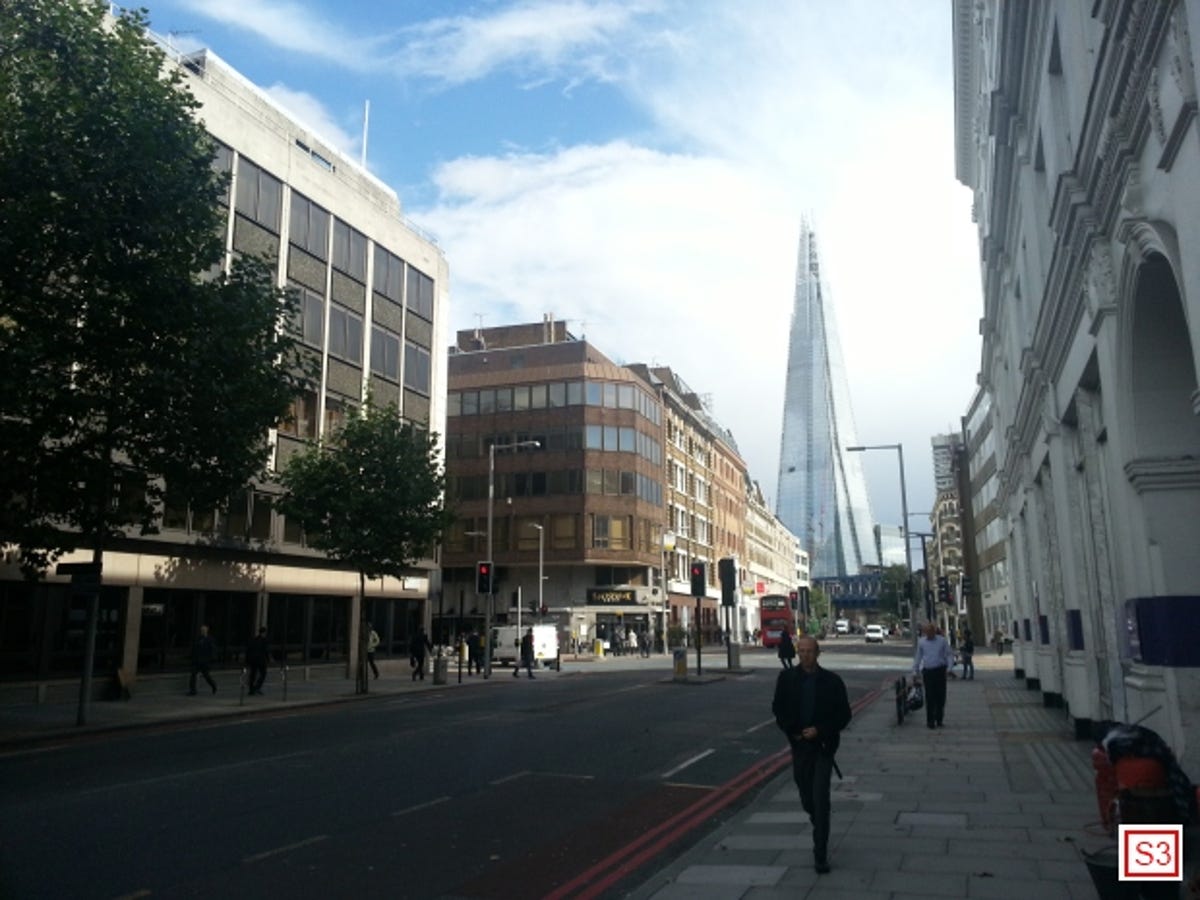

The difficulty in properly exposing was particularly noticeable on the HTC One X and to a lesser extent on the Galaxy S3. Both cameras produced quite strongly blown-out highlights in the sky and the S3’s attempt, in particular, resulted in a rather cold colour cast to the scene.
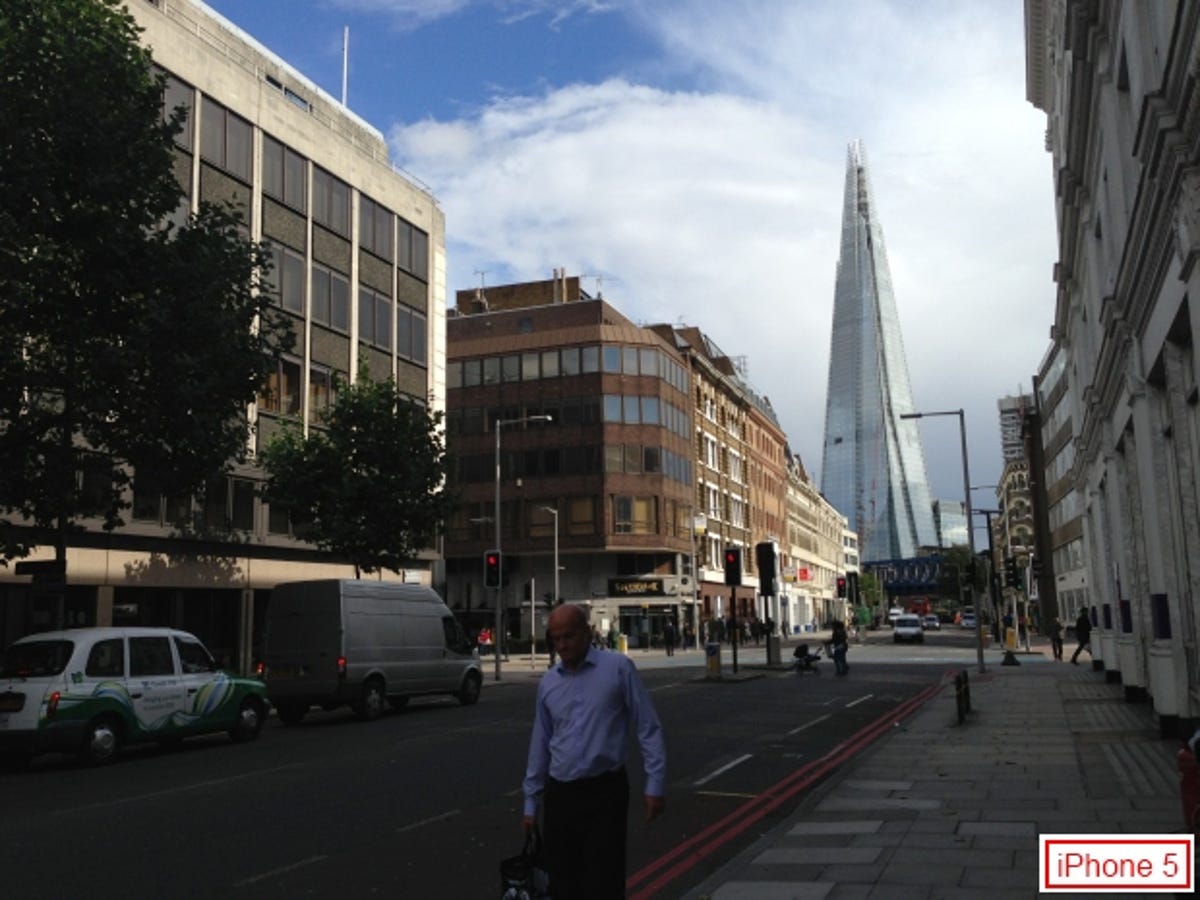

The iPhone 5, meanwhile, gave a much more even exposure overall, avoiding the blown-out clouds, while retaining plenty of detail in the buildings and pavement.
Winner: iPhone 5
HDR test
If the scene you’re shooting has a strong mix of bright and dark areas and your phone can’t accurately expose by itself, then try setting it to HDR mode. HDR stands for high dynamic range and combines multiple photos, each taken to expose for the bright and dark areas, which are then combined to create an even exposure overall. At least that’s the theory.
All three phones offer HDR functions but the results vary considerably. I tested them using the same outdoor scene as before for easy comparison. The HTC One X’s approach appeared overly processed, which resulted in a very unrealistic — and unimpressive — photo.


The Galaxy S3’s was much better, with the previously blown-out highlights in the sky rescued, but the overall scene looking a little dull. The once white, fluffy clouds appear like a grey splodge on the skyline.
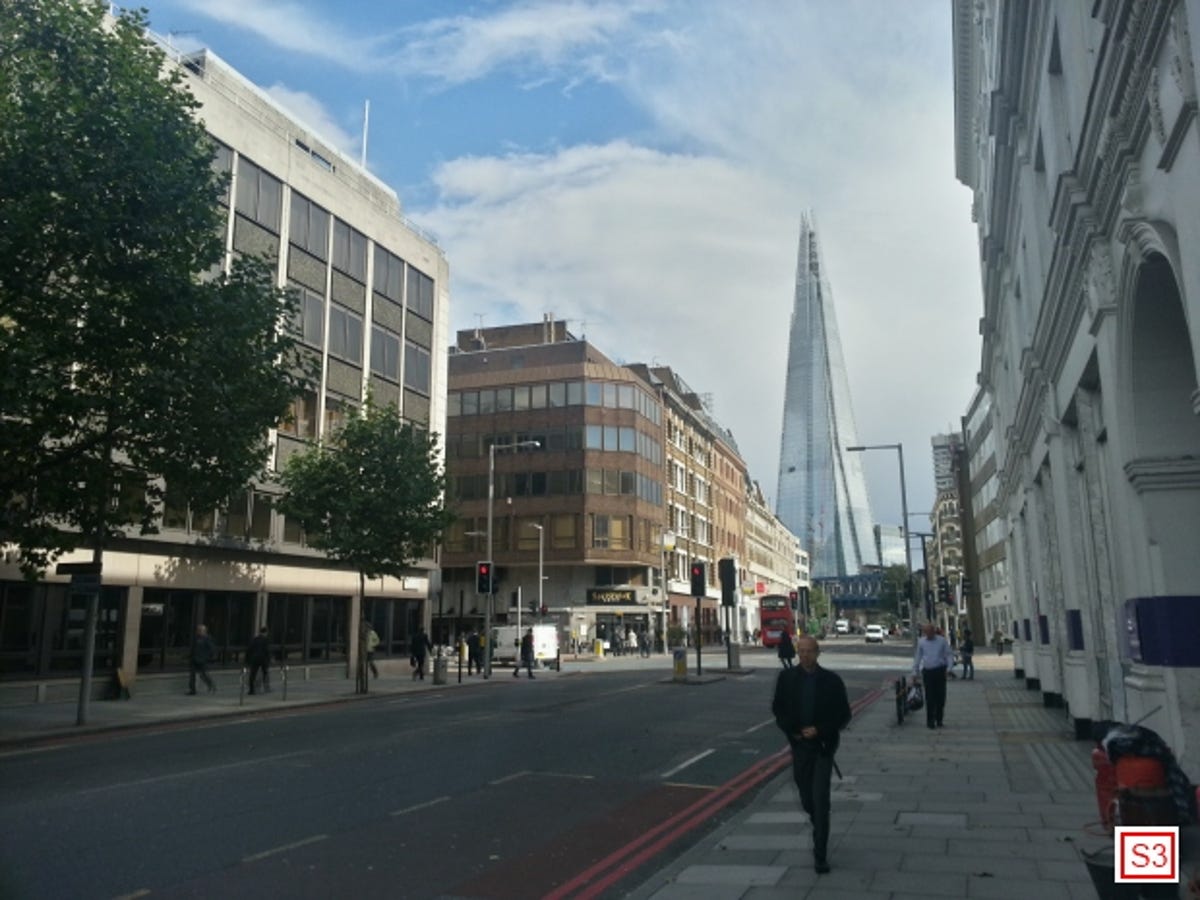

The iPhone 5 maintained the even exposure it captured without HDR, but managed to brighten up the pavement, bringing out some of the detail in brickwork and on the surrounding buildings. It also provided richer colours than the S3 and the One X. So the iPhone takes the top spot in this category.


I’ve also included a ‘before and after’ shot I took using the iPhone 5’s HDR function as a reference, as I think its ability to deliver a well-balanced shot in this scene is particularly impressive. The S3’s attempt at the same scene is below. I sadly wasn’t able to take the shot on the HTC One X, so I’m not including this scene in the conclusion.
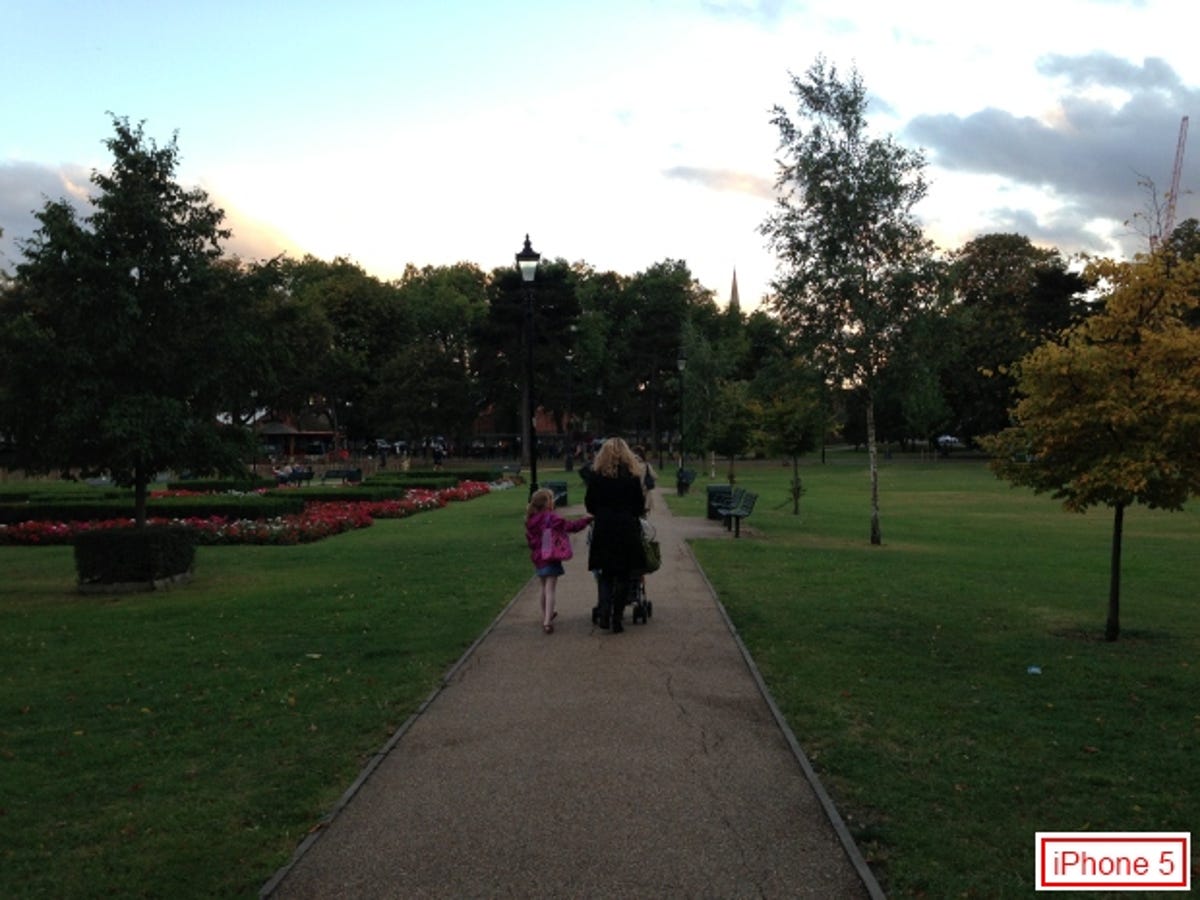

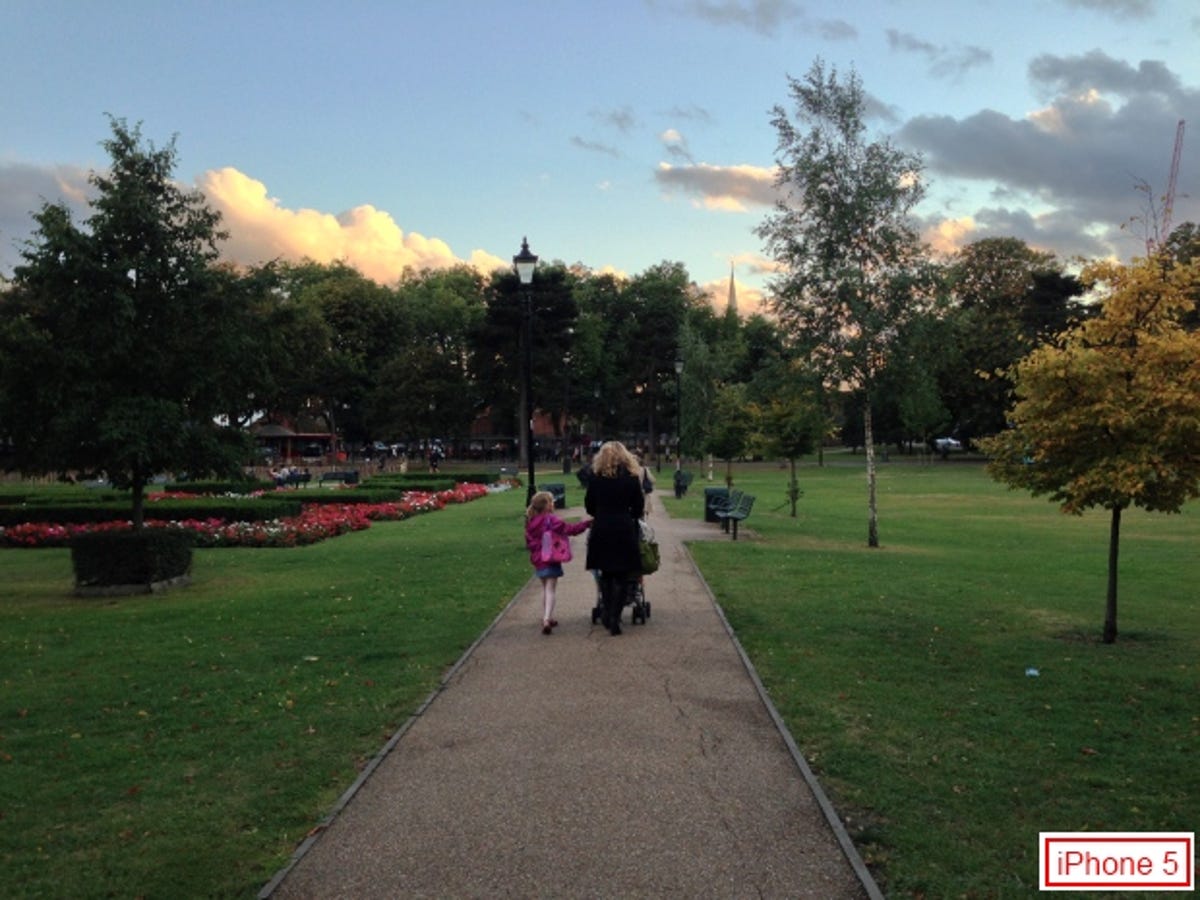

Here’s the S3’s effort, without HDR and then with.
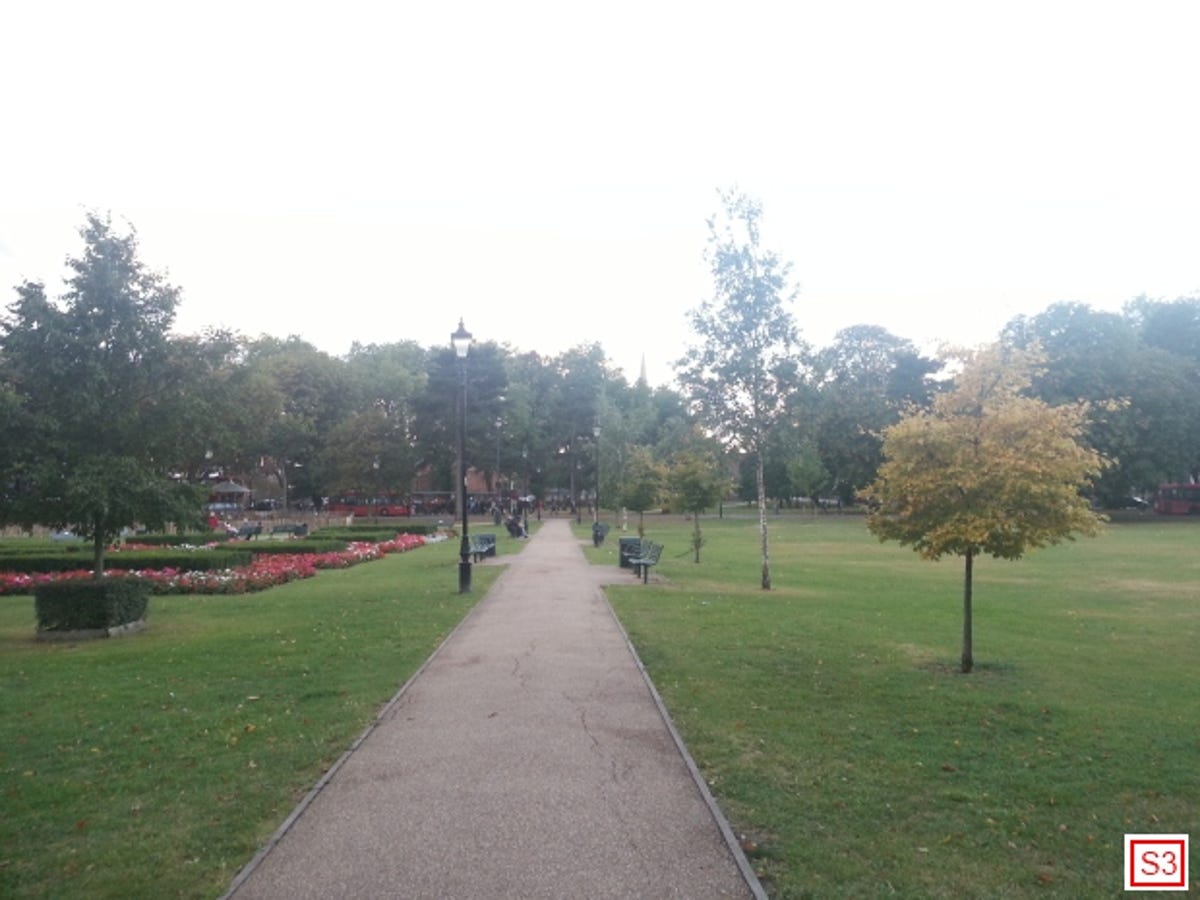



Winner: iPhone 5
Low-light test
With their small sensors and tiny optics, phone cameras are never that great at taking low-light shots as they’re unable to let in enough light to do the scene justice. If a phone is going to be your main snapper, you’ll want a decent performance in low-light situations.
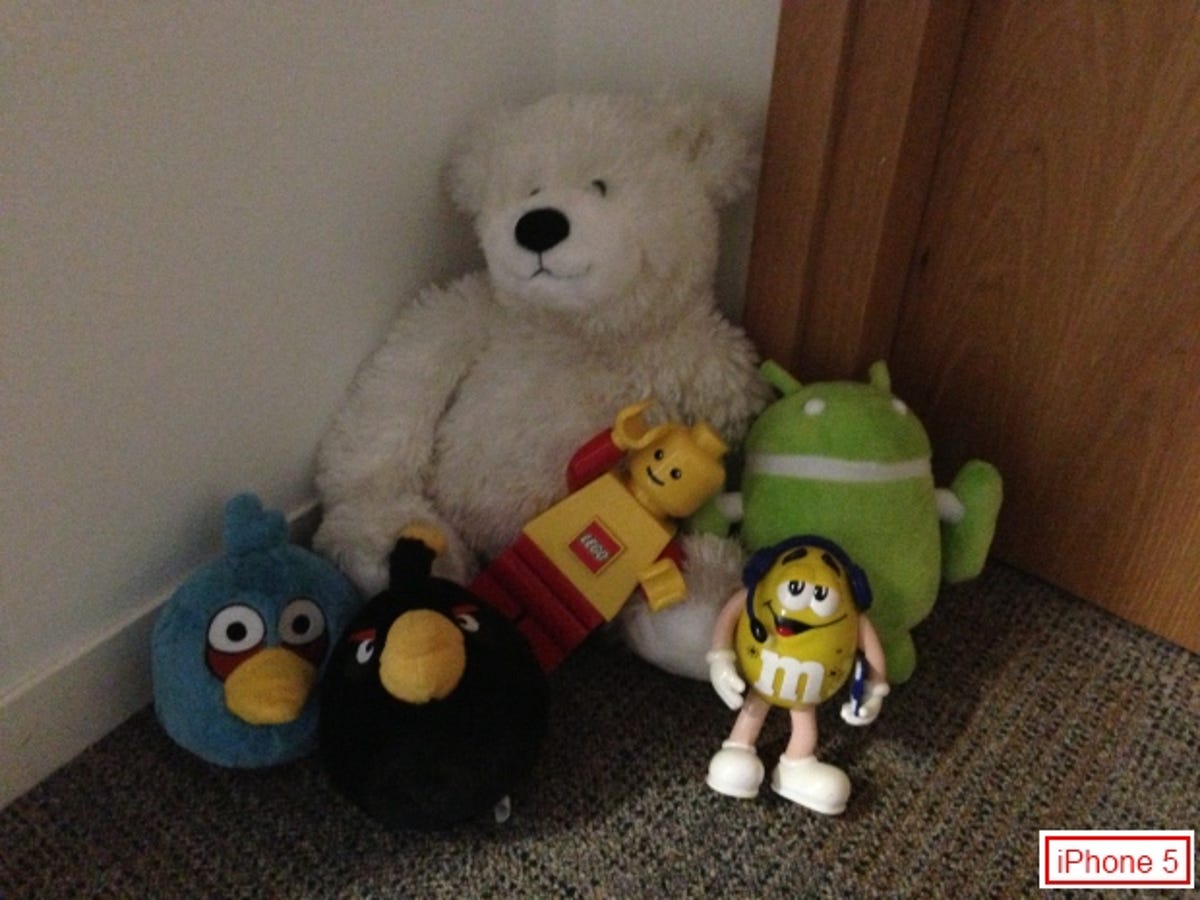

The iPhone 5 gave the worst performance overall. Its photo lacked detail and clarity. A large amount of image noise also crept in, which is particularly evident on the white walls.


The Galaxy S3 came second in this round, providing a sharper, cleaner image than the iPhone 5, although it again suffered from a rather cold colour cast.


The HTC One X put in the best performance, with its photo not only sharper than the others but also displaying much less image noise. It produced warmer tones than the S3.
Winner: HTC One X
Low light with flash test
If you don’t want your subject shrouded in darkness when taking low-light shots, then turning the flash on is essential. All three phones boast LED flashes on the back, so let’s take a look at what they can do.
Where previously the One X had excelled, it now falls to the back of the pack. Its shot not only lacks the definition offered by its rivals, but it also suffers from a huge case of blues. If you were using the flash to take a romantic picture of your significant other, I doubt they’d be too flattered by the results.
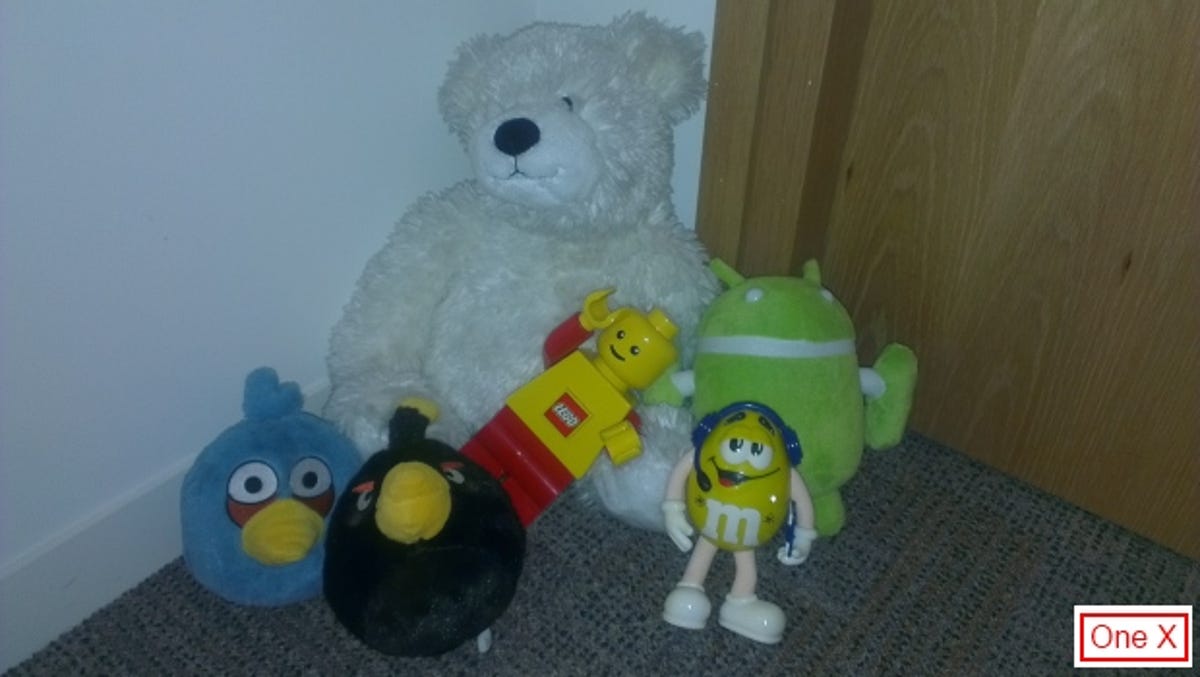

The Galaxy S3’s attempt was much clearer, with sharper lines visible around each object. It too suffers from a blue hue, but it’s nowhere near as bad as the One X’s.
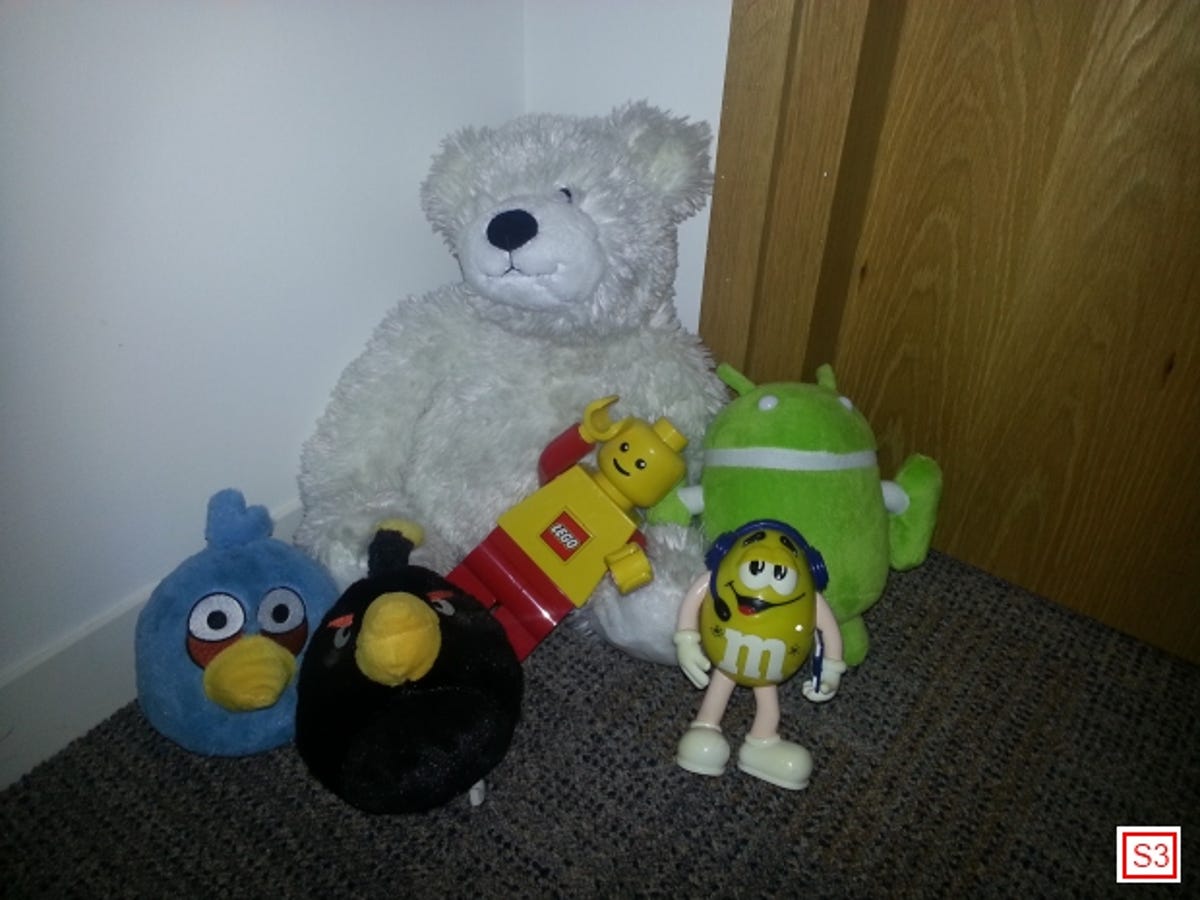

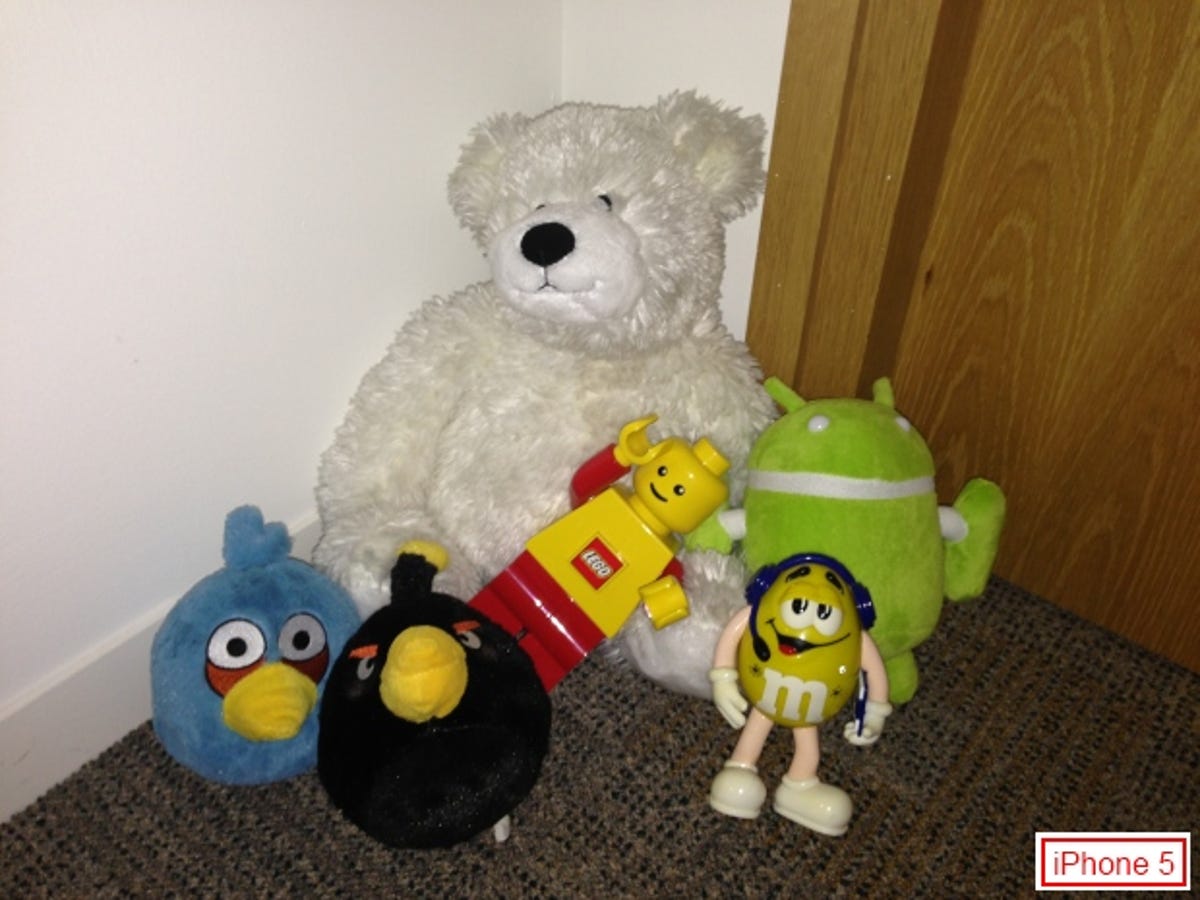

The iPhone 5 takes the prize here as its shot is not only clear and well defined, but it also provides natural, warm tones that are significantly more appealing than its two Android rivals.
Winner: iPhone 5
Panorama test
The iPhone’s update to iOS 6 brought with it the ability to take panorama pictures, simply by pressing the shutter button and moving the phone from one side to the other. This feature was already present on the S3 and One X though, so let’s see how the results stack up.


The HTC One X’s attempt was mostly good, without too much distortion visible from the automatic stitching. There was some visible on the trees just left of the middle though, and the over-exposure of the sky was so strong that it had quite a negative effect on the edges of all the foliage.


The iPhone 5’s attempt just snuck in front though, as it was almost entirely free of stitching errors and did a better job of keeping the bright sky under control.


The Galaxy S3’s attempt was frankly laughable. A panorama is made up of multiple photos stitched together and it’s evident that the S3’s camera has re-exposed for each individual shot. It’s all too clear to see how it has attempted to lower the exposure in the middle to avoid over-exposing the sky, which doesn’t fit at all with the rest of the scene.
Winner: iPhone 5
Interface and features
If you want to get all arty and creative with your shots, you’ll need a phone that lets you tweak the camera as much as possible.
The iPhone 5 has the most stripped-back camera interface you’re likely to see on a phone. Its only customisable features are turning the HDR and panorama functions on or off. There’s no option to change the image quality, scene mode or add any in-camera effects.
Both the Galaxy S3 and the HTC One X, however, add a truckload more to the mix, letting you tweak not only the resolution, but also use scene modes for better capturing action events, nighttime shots or close-up objects. It also has a bunch of filters for giving your snaps vintage tones or vignette effects.
Of course, a lot of these features can be achieved — with perhaps better results — with downloadable apps such as Instagram, which are available across iOS and Android. But it’s certainly a helpful extra to have these settings built in as standard, so you don’t have to load up a separate app.
Winner: HTC One X and Samsung Galaxy S3 — there’s very little difference between their interfaces.
Overall winner
While the iPhone 5 might not cope quite as well in low-light situation as its rivals, and its interface certainly doesn’t offer the same level of customisation, it gives a stronger performance in most other areas, particularly with its HDR skills. For those reasons, the iPhone 5 takes the prize for having the best camera.



